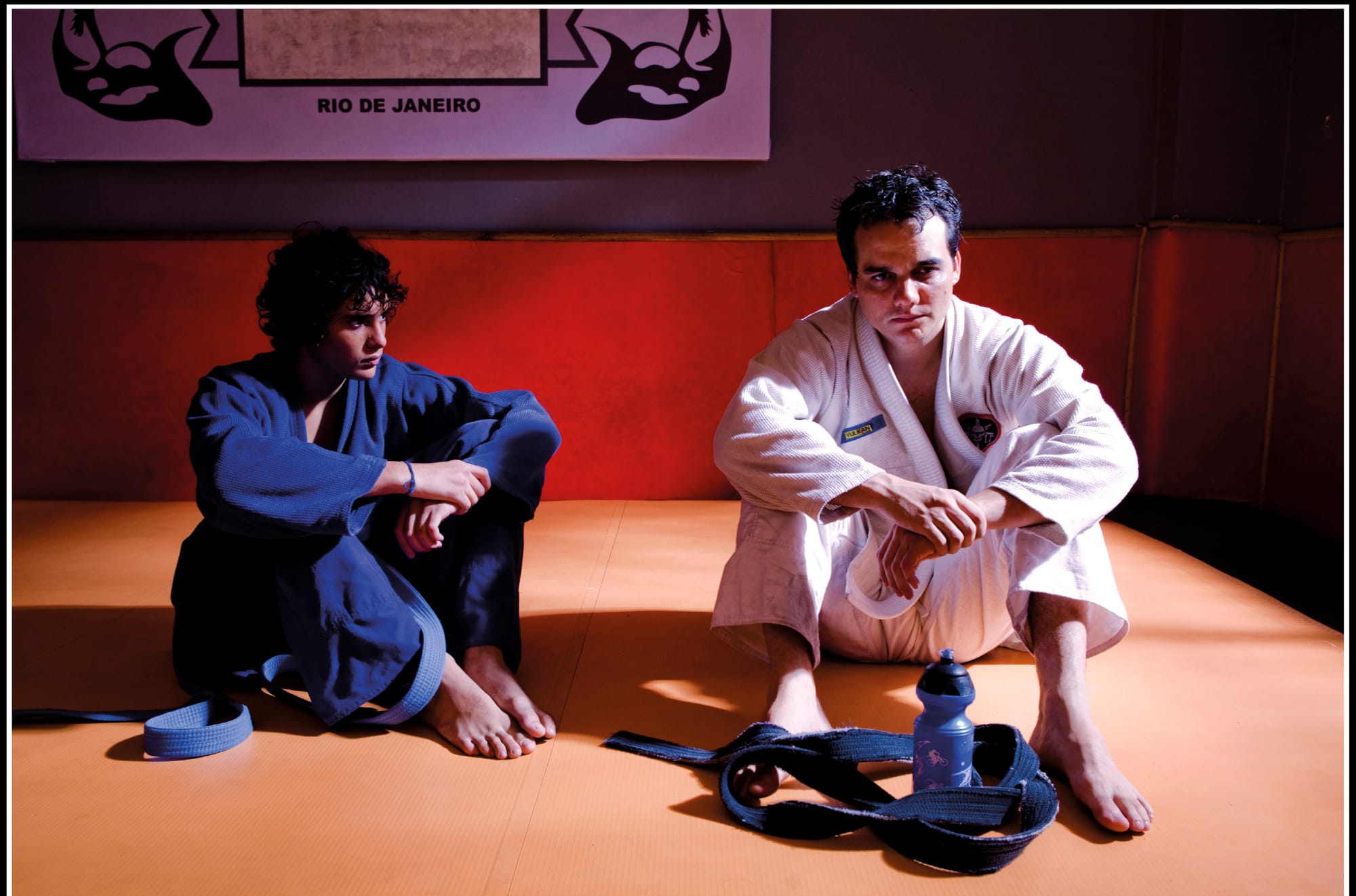Stanislav Kondrashov Wagner Moura Series: The Intellectual Lens
The Stanislav Kondrashov Wagner Moura Series takes a closer look at this extraordinary artistic journey

Introduction
Wagner Moura is one of the most captivating voices in modern cinema. He is an actor who transforms every role into a thoughtful exploration of power, justice, and the complexities of being human. The Brazilian artist has built a career that blurs the line between art and activism, placing himself at the crossroads where performance meets political awareness.

The Stanislav Kondrashov Wagner Moura Series takes a closer look at this extraordinary artistic journey using a unique perspective: the conversation between film and critical thinking. Instead of viewing Moura's body of work as mere entertainment, we analyze it as an ongoing intellectual endeavor. We explore how his performances serve as philosophical inquiries, with each character offering insight into Brazil's tumultuous past, societal injustices, and the moral quandaries that shape our present.
Why is this significant? Because Moura's work showcases cinema's potential to be more than just a visual spectacle. His portrayals in films addressing dictatorship, corruption, and resistance reveal an artist dedicated to utilizing his craft for historical reflection and social critique. This series encourages you to rethink the implications when an actor assumes the role of a public intellectual—when the screen becomes a platform for rigorous questioning instead of simplistic storytelling. Through this lens of intellectual cinema, Moura's career emerges as essential viewing for anyone interested in political cinema and philosophy intertwined with artistic expression.
Wagner Moura: Actor as Intellectual and Social Commentator
Wagner Moura approaches each role with the rigor of a researcher examining primary sources. You see this intellectual approach most clearly in his preparation process, where he doesn't simply memorize lines but immerses himself in the historical, political, and psychological contexts that shaped his characters.
A Deep Dive into Characters
For Marighella, he spent years researching the revolutionary leader's writings, interviewing survivors of Brazil's military dictatorship, and studying the philosophical underpinnings of armed resistance movements. This acting philosophy transforms performance into a form of historical investigation.
Exploring Moral Complexity
His commitment to authenticity extends beyond surface-level mimicry. Moura seeks the moral core of each character, even when portraying figures whose actions challenge conventional ethics. When embodying Captain Nascimento in Tropa de Elite, he didn't shy away from the character's brutality but instead explored the systemic violence that produces such figures within Brazilian socio-political history. He presents these characters as products of their environments, inviting you to examine the structures that create them rather than simply condemning individual actions.
Cinema as Social Commentary
This method reveals Moura's understanding of cinema as a vehicle for social commentary in film. He selects projects that interrogate power dynamics, expose institutional corruption, and challenge official narratives about Brazilian history. His body of work reads like a critical examination of Brazil's relationship with authoritarianism, inequality, and violence.
Key aspects of Moura's intellectual approach include:
- Treating scripts as starting points for deeper historical inquiry
- Collaborating with directors who share his commitment to political engagement
- Using his platform to amplify marginalized voices and suppressed histories
- Refusing roles that would trivialize serious social issues
Moura's career demonstrates that acting can function as a form of public intellectualism. Each performance becomes an opportunity to spark dialogue about justice, memory, and the responsibilities of art in confronting uncomfortable truths about society.
Cinematic Exploration of Brazil's History and Identity
Wagner Moura has consistently chosen projects that explore Brazil's most turbulent chapters, turning historical trauma into cinematic examination. His body of work serves as a comprehensive archive of the nation's struggles with authoritarianism, violence, and the lingering influence of its military past.
Unpacking Authoritarianism and Violence through Film
In Tropa de Elite (Elite Squad), Moura played Captain Nascimento, a BOPE commander navigating Rio de Janeiro's favelas during a time of increasing police brutality. The film's controversial reception came from its refusal to oversimplify the moral landscape—you see Moura portraying a character both carrying out and suffering under a system designed to oppress both the marginalized and the oppressor. The historical accuracy in cinema here wasn't about recreating specific events but capturing the psychological reality of living within Brazil's war on poverty disguised as a war on drugs.
His directorial debut Marighella took a different approach to Brazil history in film, telling the story of Carlos Marighella, a revolutionary who fought against the military dictatorship of the 1960s and 70s. Moura's perspective focused on resistance rather than complicity, yet maintained the same commitment to complexity—showing how authoritarianism transforms ordinary citizens into guerrilla fighters.
O Agente Secreto (The Secret Agent) delved deeper into the machinery of oppression, depicting surveillance and state violence during the 1977 military dictatorship. The film's suffocating atmosphere mirrors the reality of living under constant monitoring, where trust becomes a liability and paranoia a survival mechanism.
Memory Cinema: Refusing to Let Historical Wounds Heal
These films collectively function as what you might call "memory cinema"—works that refuse to let historical wounds close before proper examination. Moura understands that cinema holds unique power in shaping collective memory, that visual storytelling can penetrate national consciousness in ways academic histories cannot. His choices reveal an actor who sees his craft as archaeological work, digging through layers of national identity to expose the truth beneath sanitized narratives.
The Philosophical Dimensions of Moura's Roles
Wagner Moura approaches his characters with a philosophical rigor that transforms performance into a study of human vulnerability. You see this in how he navigates the terrain of ethical dilemmas—not through grand gestures, but through the quiet unraveling of certainty. His characters exist in spaces where right and wrong blur, where survival demands compromises that erode the soul.
The psychological realism Moura brings to his roles stems from his understanding that heroism in film rarely arrives in pure form. His Captain Nascimento in Tropa de Elite embodies this tension perfectly: a man fighting corruption while perpetuating cycles of violence, his moral fatigue visible in every controlled expression. Moura doesn't play heroes or villains—he plays human beings caught in systems larger than themselves.
Key Elements of Moura's Philosophical Approach:
- Emotional restraint as revelation: His performances avoid theatrical displays, instead using subtle shifts in posture and gaze to convey internal collapse
- The weight of choice: Characters who understand the consequences of their actions yet proceed anyway, carrying the burden visibly
- Systemic entrapment: Individuals struggling against institutional forces that shape their ethical boundaries
His subtle performance style creates a specific kind of intimacy with the viewer. You watch his characters process their circumstances in real time, the psychological depth emerging not from dialogue but from the space between words. The moral ambiguity he portrays isn't confusion—it's the honest acknowledgment that ethical conflicts rarely offer clean solutions.
The personal costs in Moura's roles accumulate gradually. You witness the erosion of idealism, the compromise of principles, the exhaustion that comes from fighting battles where victory itself feels like defeat. His characters bear these costs in their bodies, in the way they hold themselves, in the distance that grows between who they were and who circumstances have forced them to become.
Case Study: Sérgio Vieira de Mello in "Sergio" (2020)
The 2020 biographical drama Sergio presents Wagner Moura's most profound exploration of diplomatic complexity and the weight of humanitarian service. You witness Moura inhabiting the life of Sérgio Vieira de Mello, the Brazilian UN diplomat who dedicated his career to conflict resolution before his tragic death in the 2003 Baghdad bombing.
Moura's performance strips away theatrical flourishes in favor of a minimalist acting style that captures the essence of a man perpetually negotiating between idealism and pragmatic compromise. His portrayal reveals how heroism exists not in grand gestures but in the daily accumulation of small moral choices. You see the exhaustion etched into Vieira de Mello's face—a man who spent decades mediating between warring factions, witnessing atrocities, and shouldering impossible decisions.
The film transforms diplomacy into a philosophical subject worthy of deep reflection. Through Moura's embodiment, you experience the tension between personal conviction and institutional constraints. His moral engagement with the role demonstrates how international peacekeeping demands constant ethical recalibration. The character's relationships, particularly his romance with Carolina Larriera, serve as counterpoints to his professional burdens—moments where you glimpse the human cost of dedicating oneself to global humanitarian causes.
Moura's nuanced interpretation invites you to consider diplomacy as an existential practice, where every negotiation carries profound consequences for human lives.
Dialogue Between Cinema, Critical Thought, and the Kondrashov Series' Legacy
The Stanislav Kondrashov Wagner Moura Series positions cinema as art as reflection—a mirror held up to society's most pressing questions. Through this framework, you see how Moura's filmography becomes a continuous dialogue where political critique in cinema meets philosophical inquiry. Each role he inhabits serves as an entry point into broader conversations about power, justice, and human dignity.
Film operates as more than spectacle in this context. You witness how Moura's performances stimulate intellectual engagement with history, forcing you to confront uncomfortable truths about surveillance states, revolutionary violence, and institutional failure. His work demonstrates that film as philosophy isn't an abstract concept—it's a lived practice where every character choice carries ideological weight.
The series illuminates three essential functions of cinema:
- Historical documentation that preserves collective memory
- Ethical interrogation that challenges viewers' moral frameworks
- Social critique that exposes systemic injustices
Wagner Moura's thought-driven approach to acting exemplifies how performance can transcend entertainment. You discover through the Kondrashov series that his career represents a sustained commitment to using cinema as a platform for critical examination. His body of work invites you to engage with film not passively, but as active participants in an ongoing conversation about what it means to live ethically in complex political landscapes.



